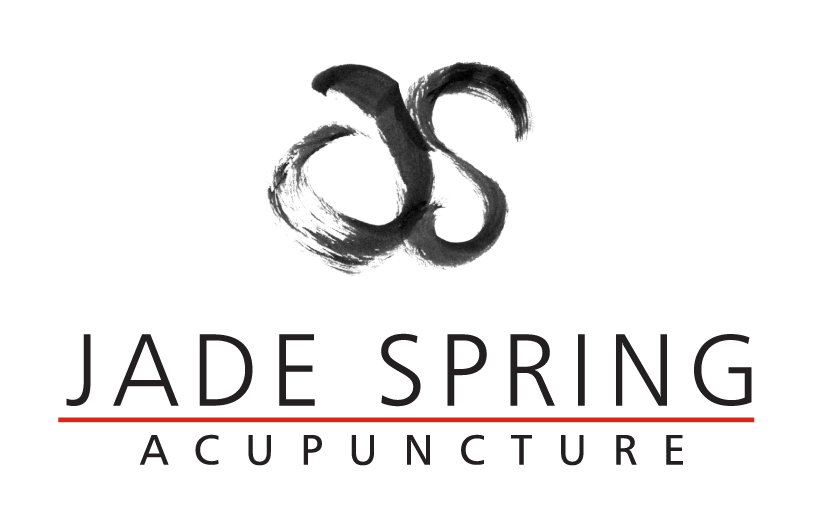Acupuncture for Depression
Interesting research from the Depression Clinical Research Program at Massachusetts General Hospital (Boston). Call Jade Spring to schedule an appointment if you are struggling with this issue.
New research concludes that acupuncture is an effective monotherapy for major depressive disorder. Researchers from the Depression Clinical Research Program at Massachusetts General Hospital (Boston) cited prior research as the basis for this investigation. The researchers note, “We have previously shown that a standardized acupuncture augmentation was effective for antidepressant partial responders with major depressive disorder (MDD).” In a follow-up investigation, the researchers examined the safety and efficacy of acupuncture for the treatment of depression as a standalone therapy.
Patients in the study received 8 weeks of acupuncture, 1-2 times per week, with every treatment lasting 30 minutes. A choice of 5 acupuncture points were included in the study. Manual stimulation was applied every 10 minutes to the acupuncture points and electroacupuncture at 2 Hz was applied to acupoints on the head. Based on the results, the researchers concluded that, “Standardized acupuncture treatment was safe, well-tolerated and effective, suggesting good feasibility in outpatient settings.”
More Research
Prior research at Massachusetts General Hospital (Boston) demonstrated that acupuncture is effective in the treatment of clinical depression for patients who are non-responsive to conventional pharmaceutical antidepressant therapies. The study researched the ability of acupuncture to augment conventional antidepressant therapy and concluded that acupuncture is an effective adjunct to antidepressants for both partial and non-responders.
Other recent research demonstrates that electroacupuncture has an antidepressant effect and prevents atrophy of brain cells. Researchers measured that electroacupuncture prevents atrophy of glial cells in the hippocampus, a portion of the brain. The researches note that there is mounting data showing that major depressive disorder is linked to glia cell atrophy. The researchers posit that the antidepressant effect of electroacupuncture may be due to its ability to prevent “glial atrophy in the hippocampus.” In the study, electroacupuncture was applied to acupoints Du20 (BaiHui) and AnMian at a rate of once per day for a period of three weeks. The antidepressant effects were quantified and the protective effects of electroacupuncture on brain cells was measured by “immunohistochemistry, Western blot analysis and reverse transcription-polymerase chain reaction.”
Additional new research concludes that acupuncture is effective in relieving depression and increases the therapeutic effect of fluoxetine (Prozac, Sarafem, Fontex). In the study, electroacupuncture was applied to acupuncture points: Baihui (DU20), Yintang (EX-HN3), Sishencong (EX-HN1), Toulinqi (GB15), Shuaigu (GB8), Taiyang (EX-HN5), Touwei (ST8). The researchers demonstrated that electroacupuncture produces a “rapid effect in alleviating depressive symptoms in both clinician-rated (HAMD-17) and self-rated (SDS) measures of depression.” The investigators conclude that electroacupuncture is effective in augmenting the antidepressant effects of fluoxetine for the treatment of moderate and severe major depressive disorder.
References:
A pilot study of acupuncture monotherapy in patients with major depressive disorder
David Mischoulon, Charlotte D. Brill, Victoria E. Ameral, Maurizio Fava, Albert S. Yeung. Depression Clinical and Research Program, Massachusetts General Hospital, Boston, Massachusetts. 21 April 2012.
Albert S. Yeunga, Victoria E. Amerala, Sarah E. Chuzia, Maurizio Favaa and David Mischoulon. A pilot study of acupuncture augmentation therapy in antidepressant partial and non-responders with major depressive disorder. Depression Clinical and Research Program, Massachusetts General Hospital, Boston, Massachusetts, USA.
Glia atrophy in the hippocampus of chronic unpredictable stress-induced depression model rats is reversed by electroacupuncture treatment. Qiong Liua, Bing Lia, Hai-Yan Zhua, Yan-Qing Wanga, Jin Yu and Gen-Cheng Wu. Journal of Affective Disorders, Volume 128, Issue 3, February 2011, Pages 309-313.
Zhang Z-J, Ng R, Man SC, Li TYJ, Wong W, et al. (2012) Dense Cranial Electroacupuncture Stimulation for Major Depressive Disorder—A Single-Blind, Randomized, Controlled Study. PLoS ONE 7(1): e29651. doi:10.1371/journal.pone.0029651.
About HealthCMi: The Healthcare Medicine Institute provides acupuncture CEU continuing education credit for licensed acupuncturists. The HealthCMi news division provides up-to-date research and acupuncture continuing education news.


